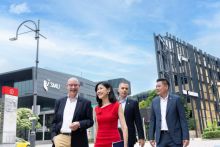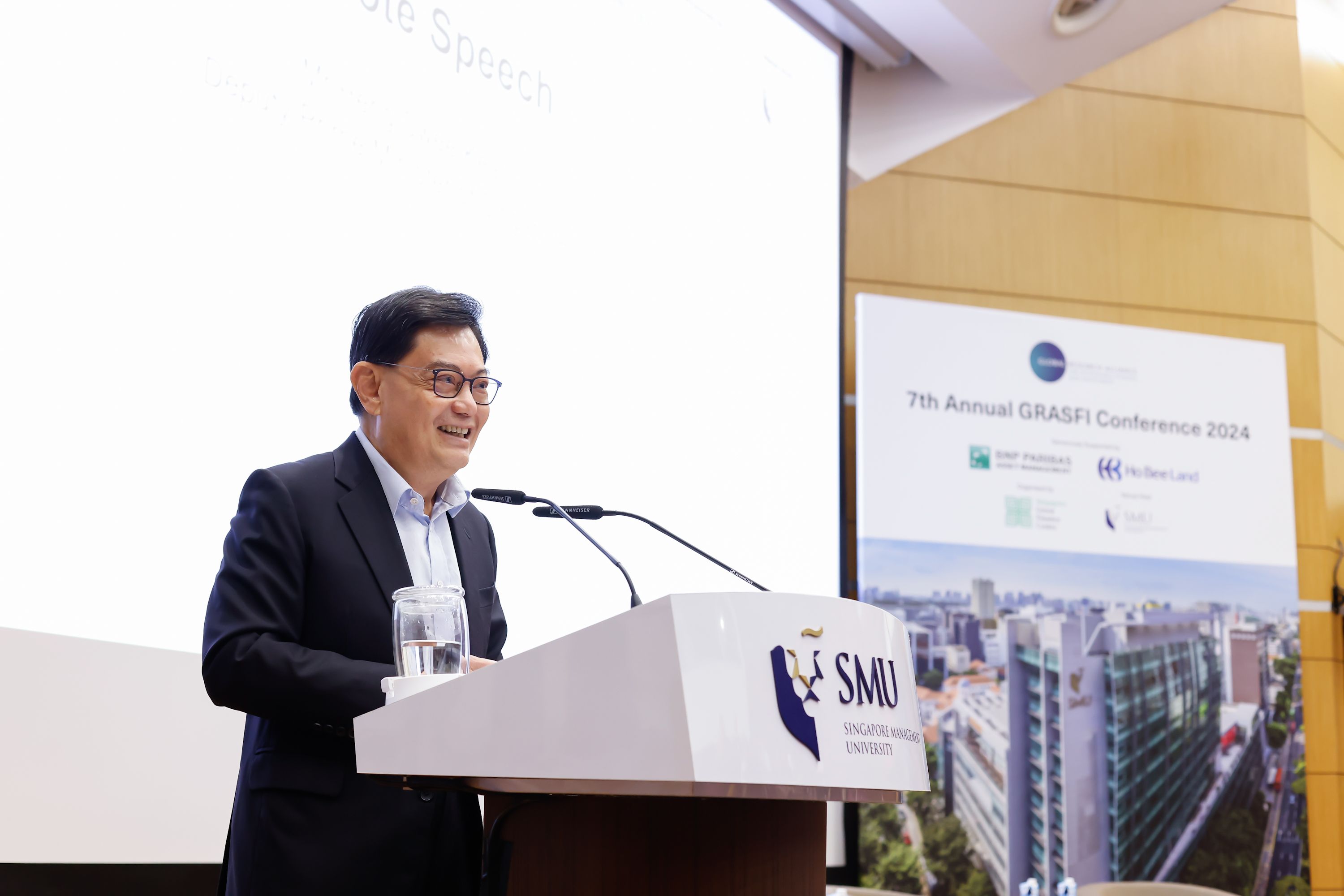
Academia plays an important role in driving decarbonisation, by guiding innovation around the globe with the rigour of science and research-backed evidence.
This was one of the key themes discussed at the seventh annual Global Research Alliance for Sustainable Finance and Investment (GRASFI) conference, hosted by SMU and the Singapore Green Finance Centre (SGFC) from 2 to 4 September 2024.
This was the first time that the conference was held in person in Asia – some 200 academics and practitioners from all over the world attended.
Three ways that academia boosts advancement
Giving the keynote speech on 2 September, Singapore Deputy Prime Minister Heng Swee Keat made the point that academia and industry can work with the government to improve regulation and skills backing sustainable finance.
“Academic researchers and practitioners like yourselves can help guide global efforts for decarbonisation and sustainable growth in an objective and science-based manner,” he said.
The first area he described is the development of better definitions and outcome measurement of sustainable finance, which will serve to guide companies and investors in decision-making, while also reducing the risk of greenwashing.
Mr Heng pointed to SGFC’s development of an Impact Weighted Account Framework, which helps companies better assess the sustainability impact of their operations and investments, as an example of how the measurement of the impact of finance on sustainability can be improved.
A second area is in helping to shape regulations that facilitate sustainable finance flows, while keeping regulatory costs down. “This is important as good regulations catalyse the flow of financing to impactful causes such as energy infrastructure, and deep-tech innovations to accelerate decarbonisation,” Mr Heng explained.
The third area in which academics can work with the government is in uplifting the skills of the talent base supporting Sustainable Finance in Singapore.
“As part of Singapore’s Sustainable Finance Jobs Transformation Map, we will invest $35 million over the next three years to upskill and reskill our finance professionals,” he shared.
Mr Heng also encouraged academics to develop new teaching modalities to make sustainable finance more accessible, highlighting as an example how SGFC leveraged SMU’s teaching infrastructure to deliver a Massive Open Online Course (MOOC).
SMU’s role in raising capacity in sustainable finance in Singapore
SMU President Professor Lily Kong also touched on SGFC and SMU’s new MOOC – “Introduction to Sustainability & Sustainable Finance” – in her welcoming remarks.
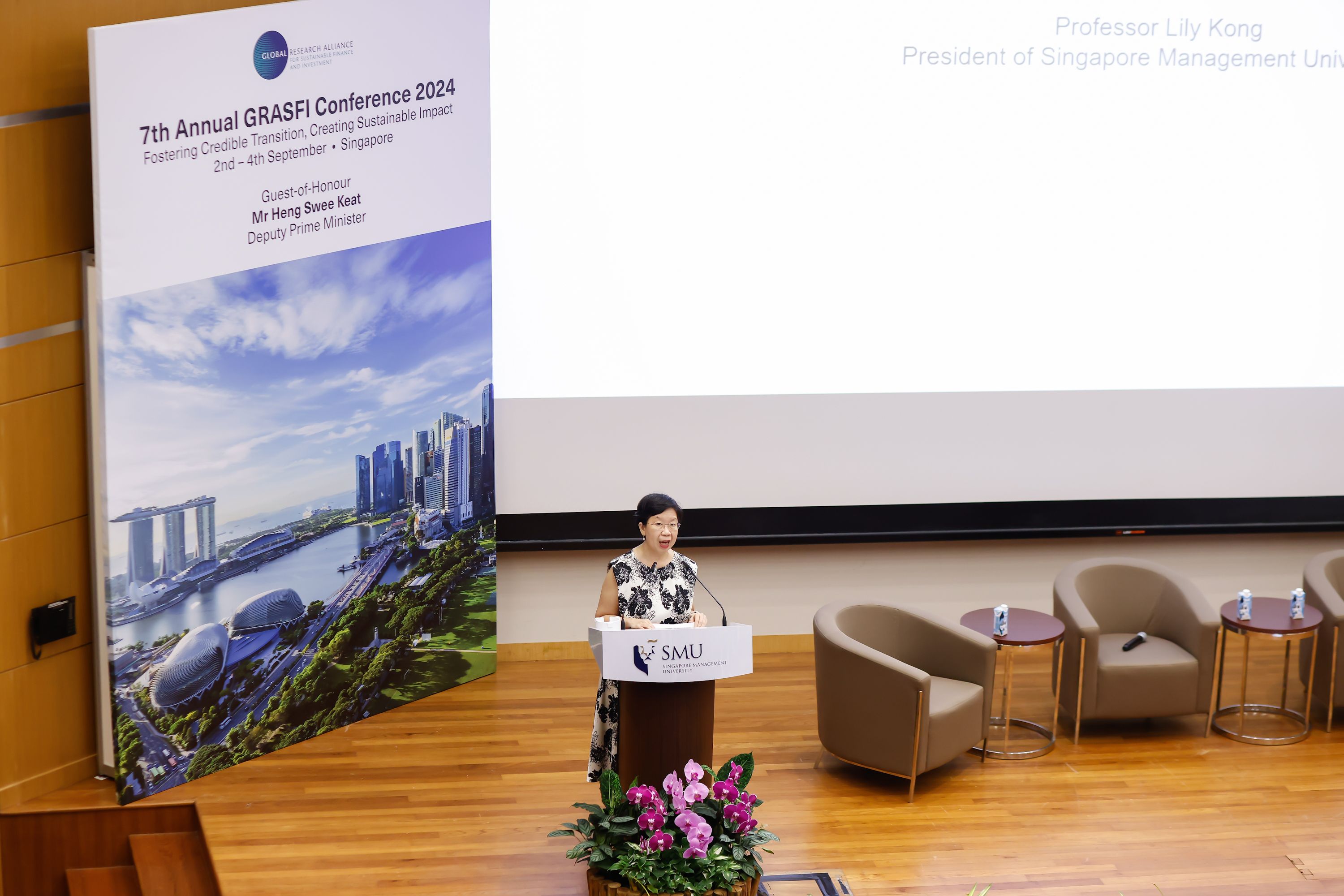
Over 500 learners have taken this MOOC – on top of a wide array of other courses that SGFC has rolled out for sustainable finance professionals. To date, over 220 finance professionals have completed SGFC courses.
Prof Kong noted SMU is the only university in Southeast Asia to be part of GRASFI, a network of global research universities advancing cutting-edge academic research on sustainable finance and investment since 2020. “We are very privileged to have received the support of the GRASFI Board for the Singapore Green Finance Centre (SGFC) at SMU to organise this premier global conference of academics,” she said.
Prof Kong went on to share the two key ways in which SGFC aims to drive global efforts to combat climate change – through the promotion of interdisciplinary research and through talent development.
Prof Kong went on to stress the urgency of sustainable investment as climate pressures intensify. “Closing the gaps in public funding to protect against floods, typhoons and higher temperatures is not enough,” she said.
“Only with efficient financing mechanisms, innovative financial products, and strongly enforced regulations will we achieve sustainable impact for the long haul.”
Measuring outcomes and safeguards for investors
Following Mr Heng’s keynote speech was a panel discussion on “Impact Investing”, moderated by Associate Professor of Finance Hao Liang at SMU, co-director of the SGFC.
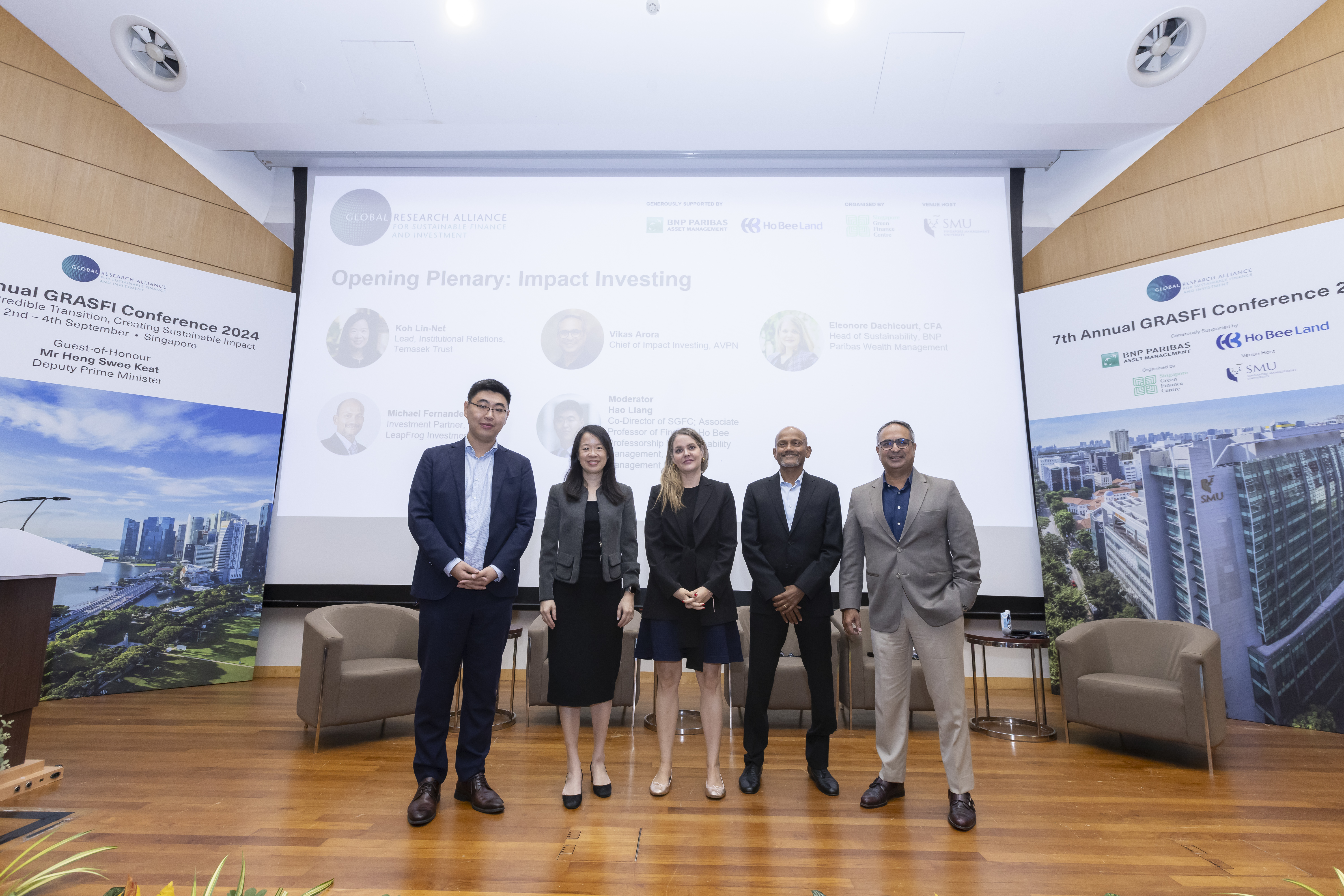
During the panel, panellists noted that the value of impact investing is much harder to measure as compared to carbon accounting. Ms Koh Lin-Net, Lead – Institutional Relations (Temasek Trust), hoped the academic community could help the sector collect the data cost-effectively using technology.
The conference also saw a panel discussion on “Nature and Biodiversity Finance” led by SGFC executive director Nikki Kemp that delved into financing safeguards and regeneration for the region’s fragile eco-systems and bio-diversity.
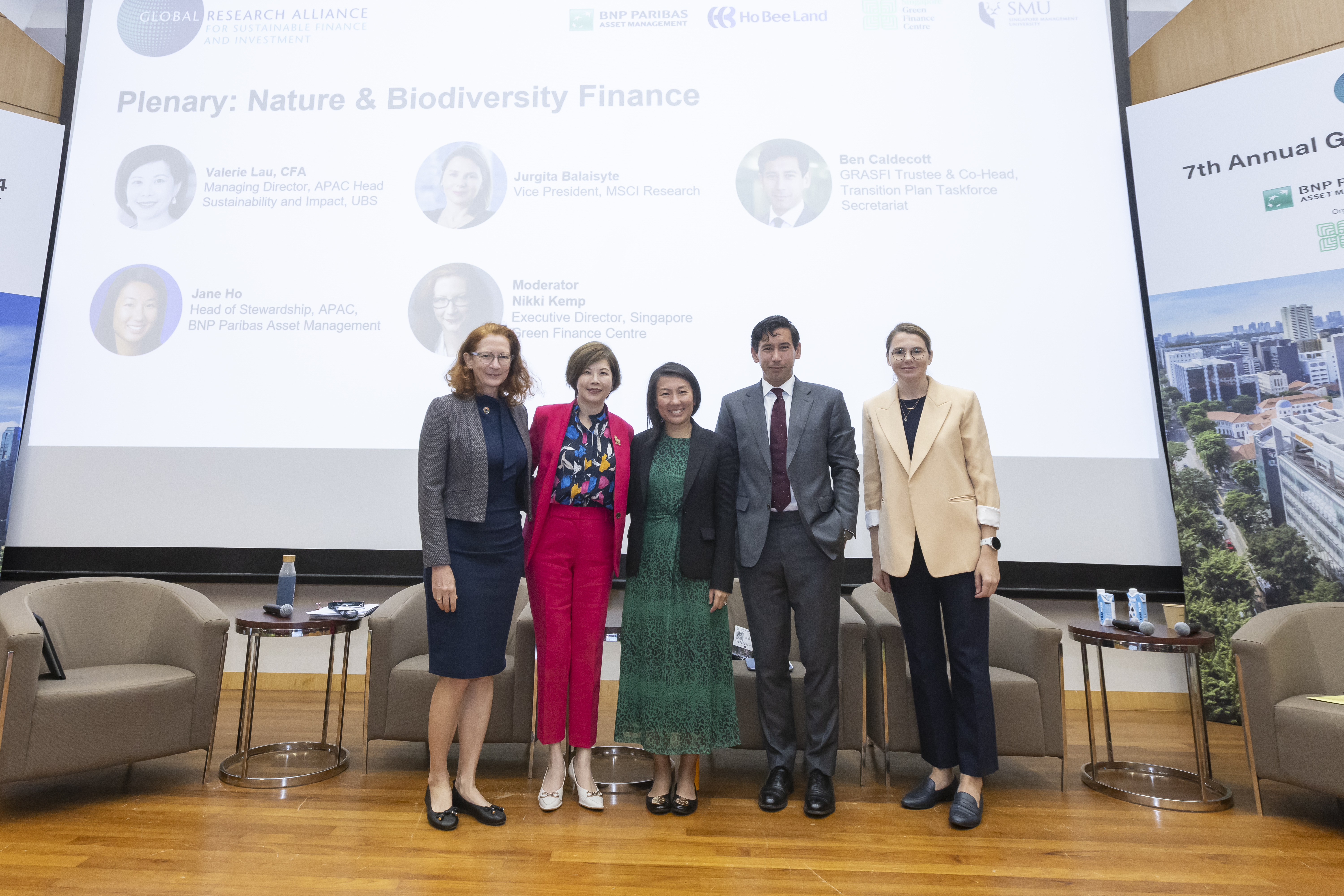
This panel highlighted the need for better funding and knowledge to support environmental impact and emphasised the importance of integrating natural capital into financial models.
SMU Professor of Urban Climate Winston Chow, who is also co-chair of the Intergovernmental Panel on Climate Change's Working Group 2, moderated a third panel on “Resilient Cities”. It was focused on integrating sustainable finance in resilient urban planning across Asia.
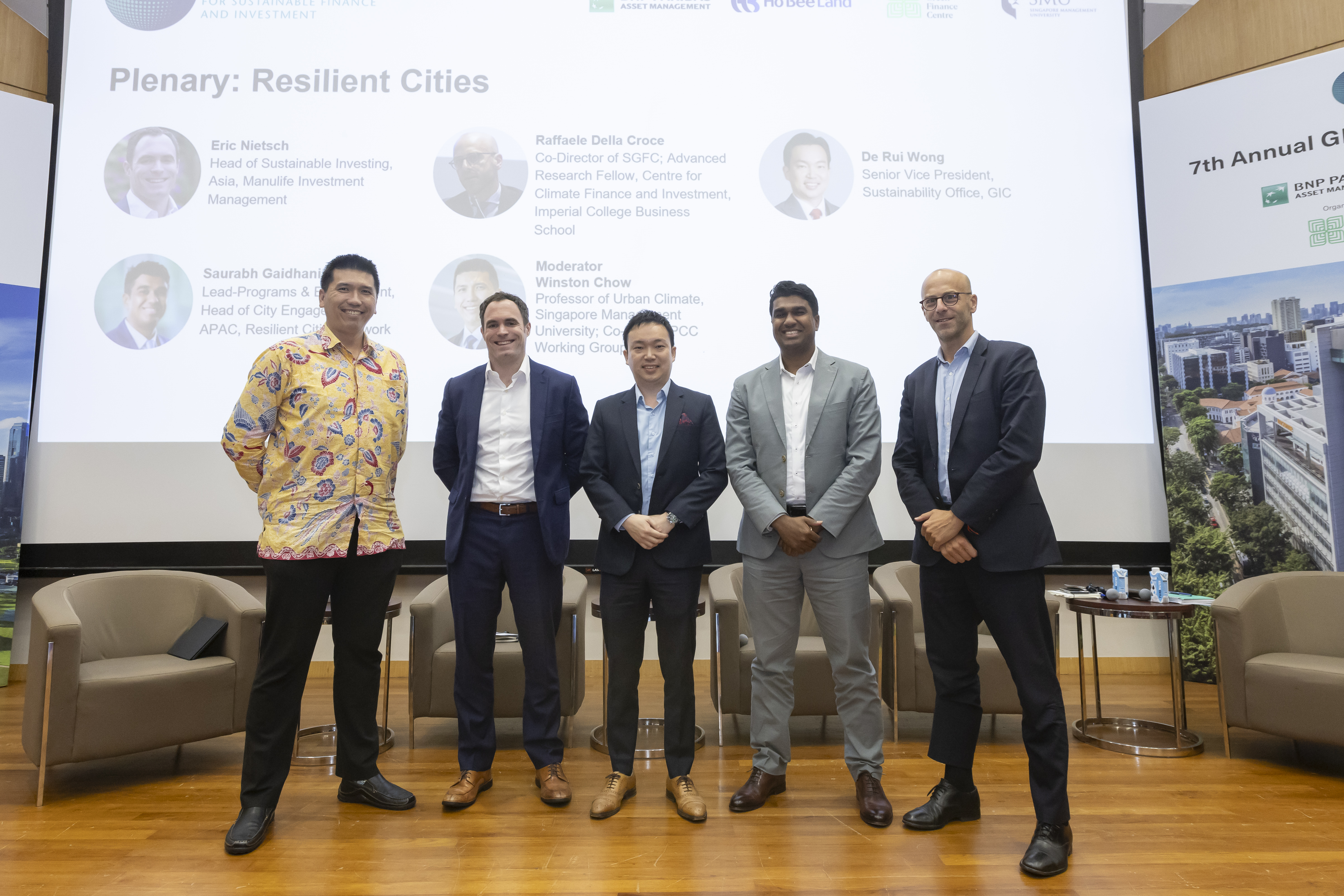
This last panel emphasised that creating smart, resilient cities requires a blend of innovative approaches, practical interventions, and ongoing adaptation to evolving needs.
See also: Guiding global innovation to foster a credible transition for sustainable impact | SMU Newsroom


